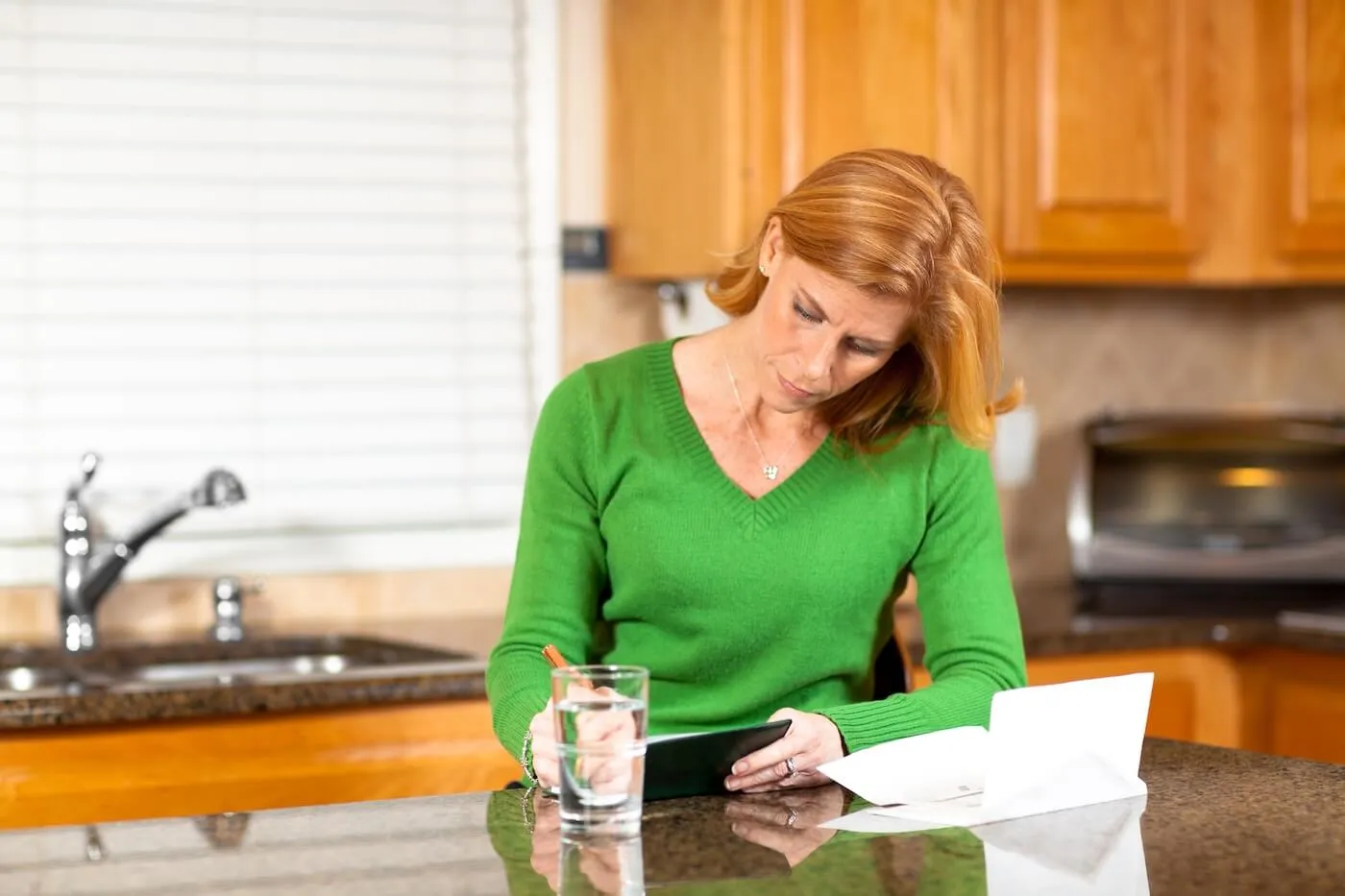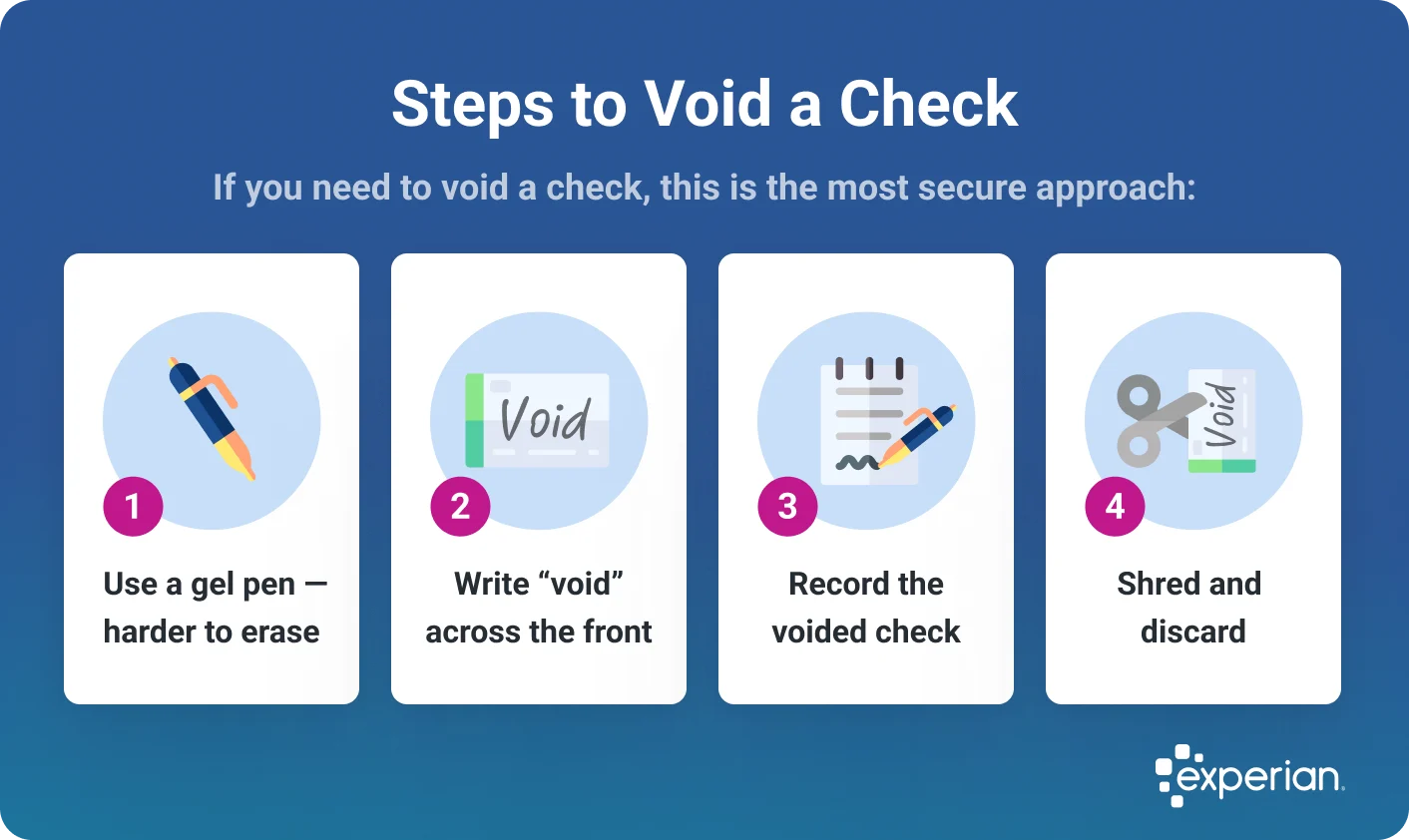How to Void a Check
Quick Answer
You can void a check by using a gel pen to write "void" across the front of the check, then making a record of the voided check and securely shredding the check.

You probably know how to write a check and deposit one, but do you know how to void a check? Voiding a check prevents the check from being cashed. You may need to void a check if you make a mistake when writing it or if you need to use a voided check for an electronic financial transaction, such as setting up direct deposit of your paycheck. Here's how to void a check step-by-step.
Steps to Void a Check
Voiding a check is simple, but it's important to follow the steps correctly to ensure your check is considered void.
1. Use a Gel Pen
Criminals sometimes remove ink from checks with chemicals in a process known as check washing and then use the check fraudulently. Black gel pens are ideal for voiding checks because the ink is difficult to wash off. Uni-Ball even sells black gel pens designed to protect against check fraud.
Manage Your Finances
Compare checking accounts
Find a digital checking account with intro bonuses, low or no monthly fees and see current APY on checking.
Featured Account
ADDITIONAL FEATURES
- Build credit by paying bills like utilities, streaming services and rentø
- $50 bonus with direct deposit‡
- No monthly fees, no minimums‡
- Secure & FDIC insured up to $250,000§
- Zero liability for fraudulent purchases¶
- 55,000+ no-fee ATMs worldwide**
- Deposit cash at popular retailers#
- Live customer support 7 days a week
2. Write "Void" Across the Front of the Check
You can either write "Void" in letters large enough to cover most of the check, or write "Void" in each of the following places:
- Payee field
- Date field
- Amount line
- Amount box
- Signature field
Don't cover up the bank account or bank routing numbers at the bottom of the check. That information is necessary if you're using the voided check to set up automatic payments, direct deposit or other financial transactions.
3. Make a Record of the Voided Check
To document your checking transactions, you can note the check number and that it was voided using your check register. You can also use your check duplicate form (if you have duplicate checks). If you think you may need evidence of the voided check later—such as for tax purposes—you can scan it or use your phone to take a picture.
4. Securely Discard the Voided Check
Because it includes your name, bank account and routing numbers, a voided check could put your finances at risk if it falls into the wrong hands. Before discarding the voided check, shred it so any sensitive information is unreadable.

Why You Might Need to Void a Check
There are several reasons you might need to void a check.
- You made a mistake. Did you misspell the payee's name, or write "three thousand" instead of "three hundred" on the amount line? Crossing out and correcting the error could cause the bank to reject the check. Play it safe and avoid delays by voiding the check and starting over with a fresh one.
- You are setting up direct deposit. Employers and others need your banking information to initiate direct deposit of your paychecks or government benefits checks. A blank, voided check includes your bank name, address, routing number and your bank account number, providing all the information they need in one place.
- You are setting up automatic transactions. You might need to provide a blank, voided check when arranging for autopayments of loans, rent, credit cards or other bills, or to initiate automatic transfers from your checking account into an investment account.
Learn more: How to Write a Check: A Step-by-Step Guide
What to Do if You Don't Have a Checkbook
If you're asked to provide a voided check but you don't have a checkbook, you generally have other options.
- Fill out an online form. Some employers let you set up direct deposits using an online portal. You'll typically be asked for the same information found on a paper check: your name, your bank's name and address, your account type and account number, and the bank routing number.
- Use a bank deposit slip. A deposit slip from your bank might be an acceptable document to set up direct deposit.
- Present a voided check or starter check. A bank teller may be able to print out a voided check for you or provide a starter check, similar to the temporary checks banks sometimes issue when you first open a checking account.
Ask your employer, landlord or other entity you're dealing with what alternatives they accept.
The Bottom Line
Voided checks can be a useful tool in managing your finances, especially when used to set up direct deposit or autopay. Direct deposit of your paycheck provides a convenient way to access your money faster while eliminating the risk of paper checks being lost or stolen. Automating payment of your mortgage, loans, credit cards, utilities and other bills helps prevent late fees and can even benefit your credit score.
To streamline your financial life even more, consider signing up for Experian's free credit monitoring service. It provides peace of mind by alerting you of important changes to your credit report so you can address potential problems before they become major issues.
Earn more with a high-yield savings account
Make your money work harder with a high-yield savings account—earn higher returns with easy access to your funds.
Compare accountsAbout the author
Karen Axelton is Experian’s in-house senior personal finance writer. She has over 20 years of experience as a journalist and has written or ghostwritten content for a variety of financial services companies.
Read more from Karen